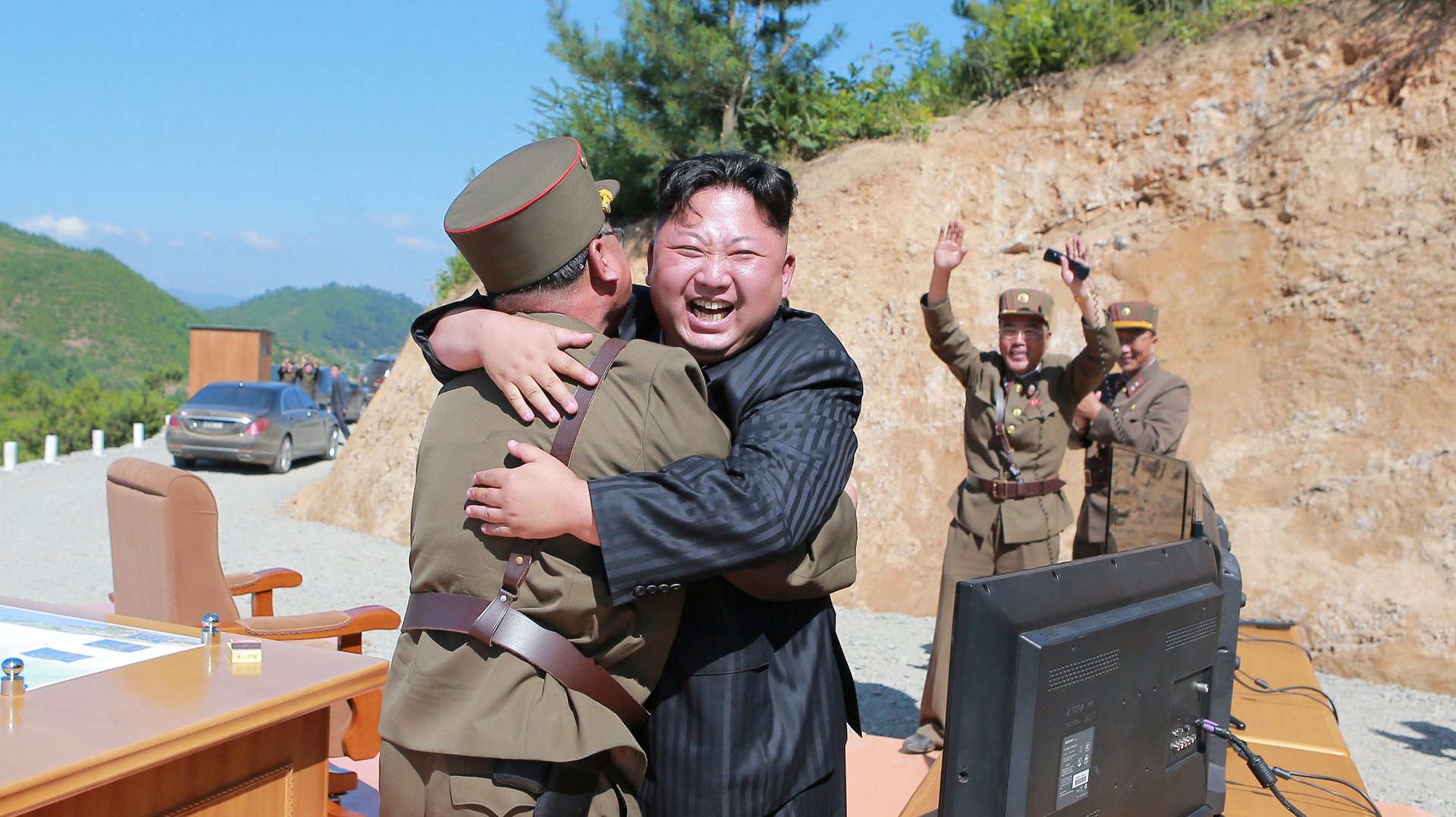North Korea gave Trump the perfect chance to actually get tough on China
After accusing China’s trade policies of “raping” the US while on the campaign trail and pledging repeatedly to “get tough on China,” US president Donald Trump’s cozy reception for his Chinese counterpart Xi Jinping in April was a complete about-face. Not only did Trump fail to threaten Xi with the huge import tariffs he’d promised, the subject may have never come up, and he has since been bragging of the great chemistry he has with Xi.


After accusing China’s trade policies of “raping” the US while on the campaign trail and pledging repeatedly to “get tough on China,” US president Donald Trump’s cozy reception for his Chinese counterpart Xi Jinping in April was a complete about-face. Not only did Trump fail to threaten Xi with the huge import tariffs he’d promised, the subject may have never come up, and he has since been bragging of the great chemistry he has with Xi.
But North Korean dictator Kim Jong-Un’s firing of a long-range missile believed to be capable of hitting the US on July 4 has given Trump, and his hawkish group of China advisors, the perfect opportunity to make good on his earlier pledge. The US is planning to alter its trade agreements with any country that does business with the regime, and particularly China, US ambassador to the United Nations Nikki Haley told an emergency meeting of the Security Council Wednesday (July 5) afternoon.
North Korea’s “actions are quickly closing off the possibility of a diplomatic solution,” Haley said. Citing a long conversation with president Trump this morning, Haley said “there are countries that are allowing, even encouraging trade with North Korea in violation of UN Security Council resolutions. Such countries would also like to continue their trade arrangements with the United States. That’s not going to happen.”
She called on the international community to “cut off the major sources of hard currency” and restrict the flow of oil to North Korea, and said the US would take action against “any country” that does business with the regime, then singled out China. “Much of the burden of enforcing UN sanctions lies with China,” Haley said. We will “work with China,” she said, but she emphasized immediacy.
China, to date, has done little in the way of curtailing trade to try to force North Korea to give up its weapons program. Trade between the two countries has grown fairly steadily since 2006, when the United Nations passed the first of several rounds of sanctions against North Korea after a nuclear test.
China is the source of most of North Korea’s oil, and Beijing is buying nearly three times as much iron ore from Pyongyang as it was a year ago.
Beijing has been reluctant to crack down on North Korea trade because of how regionally destabilizing any economic collapse could be. North Korea is already desperately poor, with a per capita GDP of just over $1,000, and further sanctions could even threaten the Kim family regime. Any crisis could send some of North Korea’s 25 million people flooding over the border into China, as Quartz noted earlier.
There’s little chance the US would actually halt all of its trade with China, as some are interpreting Haley’s remarks. US companies rely on Chinese manufacturing far too much, and US consumers on Chinese goods. But the suggestion that “trade arrangements” could be altered comes just as Trump is pushing for new tariffs on steel imports—a move that is aimed specifically at the glut of Chinese steel that has depressed global prices in recent years.